CORPORATE ACTION
WRAP Publishes First Annual Report On Progress Against UK Plastics Pact Targets
The report shows progress against four key targets:
- Eliminating problematic or unnecessary single-use plastic packaging: Members expect to remove a combined total of over 1 billion items by 2020, with progress especially advanced for straws and cotton buds. It also highlighted supermarket chain Morrisons and its roll out of loose fresh produce.
- 100% of plastic packaging to be reusable, recyclable or compostable: 65% of the members’ plastic packaging in 2018 was recyclable. There has been progress on removing non-recyclable black plastic ready-made meal trays from supermarket shelves and an increase in reusable packaging, such as in Waitrose ‘Unpacked’ trial stores. Recycling plastic films remains a particular challenge.
- 70% of plastic packaging effectively recycled or composted: This stood at 44% in 2018 in the UK. Meeting the target requires ensuring households have the information and incentive to recycle, which is being supported by the On-Pack Recycling Labelling system. The major supermarkets are also providing plastic recycling collection points for certain plastic packaging not normally included in recycling collections at home.
- 30% average recycled content across all plastic packaging: This was 10% in 2018 on average across Pact members. Progress is being achieved in water bottles, including 100% recycled content bottles from Coca Cola’s Glaceau Smartwater and Highland Spring’s Eco Bottle, and in personal and household care items. Some supermarkets have introduced ready meal trays using a high recycled plastic content. One challenge is the availability of quality recycled plastic.
CORPORATE ACTION: Danone
Danone Waters Brands Commit To Carbon Neutrality Targets
 Danone announced that four of its water brands – Evian, Lanjarón, Volvic, and Font Vella – have committed to net zero carbon emissions on a staggered schedule over the next decade in a move to accelerate achievement of a corporate 2050 target. Subsidiary companies Aguas Danone Spain, Danone Waters Germany, and Danone Waters of America all pledged to meet the targets while attending the United Nations Climate Change Conference (COP25) in Madrid.[Image Credit: © Danone S.A.]
Danone announced that four of its water brands – Evian, Lanjarón, Volvic, and Font Vella – have committed to net zero carbon emissions on a staggered schedule over the next decade in a move to accelerate achievement of a corporate 2050 target. Subsidiary companies Aguas Danone Spain, Danone Waters Germany, and Danone Waters of America all pledged to meet the targets while attending the United Nations Climate Change Conference (COP25) in Madrid.[Image Credit: © Danone S.A.]
CORPORATE ACTION: Johnson & Johnson
SC Johnson Snaps Up Stasher® Reusable Bags Brand
CORPORATE ACTION: Other
New Zealand Consumers Are Trialing Cadbury Energy Bar With Paper Packaging
.png&width=125&height=213)
Mondelez International’s Cadbury brand has launched Energy bar in 100% recyclable and sustainably-sourced paper in a trial with New Zealand consumers. It is the first time the brand has used packaging with no laminates, foils or plastics. Mondelez International says it is working on a number of sustainability initiatives, including plastic recycling technology and packaging reduction efforts.
[Image Credit: © Mondelez International]
MARKET NEWS
2018 Data Show An Increase In Post-Consumer Recycled Plastic, But The Recycling Rate Fell
According to the recently published 2018 National Postconsumer Plastic Bottle Recycling Report, from the Association of Plastic Recyclers and the American Chemistry Council, collection of plastic bottles from households for recycling was up 1.8% in 2018, but the recycling rate was down 0.4 percentage points to 28.9% versus 2017. The five-year compounded annual growth rate for plastic bottle recycling was -0.4%.
Exports of post-consumer plastic bottles fell in 2018, with 90% of plastic bottles collected remaining in the U.S. PET reclaimer capacity utilization increased to 80% from 71% in 2017; HDPE capacity utilization was 73%, up from 67% in the previous year. APR President Steve Alexander said many recyclers are investing in domestic infrastructure to meet demand for post-consumer recycled plastic.
The full report can be downloaded here.
Exports of post-consumer plastic bottles fell in 2018, with 90% of plastic bottles collected remaining in the U.S. PET reclaimer capacity utilization increased to 80% from 71% in 2017; HDPE capacity utilization was 73%, up from 67% in the previous year. APR President Steve Alexander said many recyclers are investing in domestic infrastructure to meet demand for post-consumer recycled plastic.
The full report can be downloaded here.
The Focus On Plastic Opens The Door For Glass Container Innovation
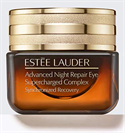 The status quo of choice between glass and plastics for beauty products is being disrupted, partly because of the growing sentiment that all plastic is bad, and that benefits the glass manufacturers. Estée Lauder’s Advanced Night Repair Eye Supercharged Complex cream was once packaged in plastic, but was switched to glass in 2018. Glass can also point to progress in the use of post-consumer recycled (PCR) content, and manufacturers claim this process goes back over a decade. Even at the luxury end of the market, some brands are reducing the weight of the glass and using recycled materials, such as Guerlain’s Abeille Royale cream jar, launched in 2019.
The status quo of choice between glass and plastics for beauty products is being disrupted, partly because of the growing sentiment that all plastic is bad, and that benefits the glass manufacturers. Estée Lauder’s Advanced Night Repair Eye Supercharged Complex cream was once packaged in plastic, but was switched to glass in 2018. Glass can also point to progress in the use of post-consumer recycled (PCR) content, and manufacturers claim this process goes back over a decade. Even at the luxury end of the market, some brands are reducing the weight of the glass and using recycled materials, such as Guerlain’s Abeille Royale cream jar, launched in 2019. But not all brands see this as a winning strategy and still believe heavy glass containers are part of the luxury image. And glass manufacturers are developing new innovations, such as internal coating for unique effects, more durable options for e-commerce, and ridged outer surfaces. Manufacturers of polymer packaging are having to rise to the challenge, with higher PCR content and alternatives to recyclate, such as bio-PET and bio-polyethylene (bio-PE). Tubes, which often require a combination of a multilayer barrier and other components, are a particular challenge, and manufacturers are exploring a range of options, such as PE and polypropylene (PP), with additives and additional layers that account for around 5% of the total material, as well as new barrier options.
[Image Credit: © Estée Lauder Companies]
PACKAGING REDESIGNS
Oatly’s Frozen Desserts Now Come In “Fully-Renewable” Packaging
[Image Credit: © Oatly]
Packaging Innovations Show Progress Toward Plastic Reduction
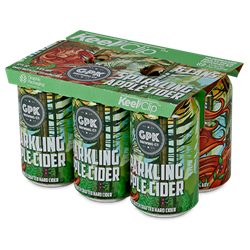 Innovations at PACK EXPO Las Vegas demonstrate the push to sustainable packaging. Here are a few selections:
Innovations at PACK EXPO Las Vegas demonstrate the push to sustainable packaging. Here are a few selections:KeelClip is a paper fastener that replaces plastic rings, tops and shrink wrap. Produced by Graphic Packaging, KeelClip is made from paperboard packaging made of recyclable paper and is an alternative to polymers that face resistance in some regions, notably Europe. Beyond sustainability, one advantage is the branding and communication possibilities if offers.
In November 2019, Coca-Cola and two of its bottling partners, Coca-Cola Hellenic Bottling Company and Coca-Cola European Partners, said they would start using KeelClip, with a goal of replacing shrinkwrap in all EU markets by the end of 2021.
CanCollar is another environmentally friendly, paperboard-based multipack solution for cans.
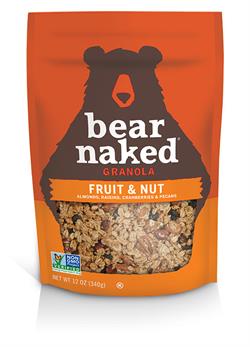 Produced by
Produced by
WestRock, CanCollar also has a surface that can be printed or embellished for brand communication.
Kashi’s fully recyclable stand-up pouch is a notable milestone, wining a PMMI (Packaging Machinery Manufacturers Institute) Technical Excellence Award at PACK EXPO Las Vegas 2019.
Development took over 18 months and required the collaboration of five partner companies. Kashi’s goal was to produce a stand-up pouch that met its specifications and could be recycled at a retail store, not sent to a special processing center as earlier packaging required.
Developing flexible packaging that can be more easily recycled is challenging because of the multiple layers in the material that are often held together by adhesives that impair recycling. This issue was navigated by using a nine-layer material from Berry Global, called Entour, which leverages a technology from Dow called RETAIN.
Good accounts of the collaboration as well as some of the technical aspects are available at Packaging World, KRUDA and Fresh-Lock.
[Image Credit: © Company sites]
Kashi’s fully recyclable stand-up pouch is a notable milestone, wining a PMMI (Packaging Machinery Manufacturers Institute) Technical Excellence Award at PACK EXPO Las Vegas 2019.
Development took over 18 months and required the collaboration of five partner companies. Kashi’s goal was to produce a stand-up pouch that met its specifications and could be recycled at a retail store, not sent to a special processing center as earlier packaging required.
Developing flexible packaging that can be more easily recycled is challenging because of the multiple layers in the material that are often held together by adhesives that impair recycling. This issue was navigated by using a nine-layer material from Berry Global, called Entour, which leverages a technology from Dow called RETAIN.
Good accounts of the collaboration as well as some of the technical aspects are available at Packaging World, KRUDA and Fresh-Lock.
POLICY, REGULATION & LEGAL
L’Oréal Brandstorm 2020 Will Look At Sustainable Innovation
The ACI Calls On Members To Do More To Promote A Circular Economy
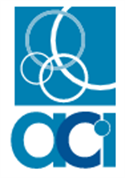 Melissa Hockstad, President & CEO of the American Cleaning Institute, called on its members to do more to create a more sustainable future through collaboration between governments, consumers, business and trade associations. As well as focusing on areas such as providing consumers with better information on what is in the products they use, and reducing the members’ carbon footprint, the ACI’s #OurFutureIsClean campaign also seeks to work towards a circular economy. Hockstad says that the ACI’s members are collaborating on projects to eliminate single-use packaging, by redesigning products and joining schemes like Loop. Around a third of its members support the How2Recyle scheme, which aims to raise consumer awareness about what can be recycled.[Image Credit: © American Cleaning Institute]
Melissa Hockstad, President & CEO of the American Cleaning Institute, called on its members to do more to create a more sustainable future through collaboration between governments, consumers, business and trade associations. As well as focusing on areas such as providing consumers with better information on what is in the products they use, and reducing the members’ carbon footprint, the ACI’s #OurFutureIsClean campaign also seeks to work towards a circular economy. Hockstad says that the ACI’s members are collaborating on projects to eliminate single-use packaging, by redesigning products and joining schemes like Loop. Around a third of its members support the How2Recyle scheme, which aims to raise consumer awareness about what can be recycled.[Image Credit: © American Cleaning Institute]
INNOVATION & TECHNOLOGY
A New Consortium Leverages BP Infinia Technology To Develop High-Quality Recycled PET At Commercial Scale
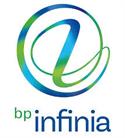 A number of organizations from the consumer products manufacturing sector and plastics recycling industry have come together to form a consortium aimed at enhanced recycling of polyester plastics at commercial scale, based on BP Infinia technology, which is designed to convert opaque and difficult-to-recycle PET plastic waste into feedstocks to make high-quality PET plastic packaging repeatedly without loss in quality.
A number of organizations from the consumer products manufacturing sector and plastics recycling industry have come together to form a consortium aimed at enhanced recycling of polyester plastics at commercial scale, based on BP Infinia technology, which is designed to convert opaque and difficult-to-recycle PET plastic waste into feedstocks to make high-quality PET plastic packaging repeatedly without loss in quality.The consortium includes packaging and recycling company ALPLA; consumer products companies Britvic, Danone and Unilever; waste management and recycling company REMONDIS; and BP. Over 75% of PET bottles produced globally are recycled, but only 12% of those collected are used to make new bottles; most of the recycled plastic gets down-cycled.
BP announced plans in October last year to build a $25 million pilot plant in the US to prove the technology can be scaled for commercialization. Trystan Farnworth, Britvic’s Director of Sustainability, said PET is not infinitely recyclable, and this is a problem that needs a solution.
Katharina Stenholm, SVP, Chief Cycles & Procurement Officer at Danone, said the company’s beverages bottles will contain 50% rPET by 2025. Marc Engel, Unilever’s Chief Supply Chain Officer, said joining the consortium is an investment in recycling technology critical to “keeping plastic in the loop”. [Image Credit: © BP]
EMERGING IDEAS, THEMES & TRENDS
Refilling Getting More Popular And Accessible, Offering Cost Savings
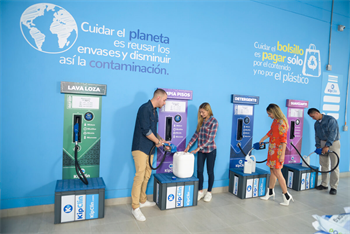 Refilling is on the upswing with growing availability of refill stores and novel ways catching on.
Refilling is on the upswing with growing availability of refill stores and novel ways catching on.Online retailer KipClin, which specializes in cleaning products and targets SMEs, has since 2018 been running a refill station in Medellin, Colombia.
Rather than offer refills of small packages, KipClin provides refills into larger receptacles from dispensers much like a gas station.
It has four pumps, one each for liquid laundry detergent, softener, dishwashing detergent, and floor cleaner.
Selling the product without packaging and at scale allows low unit prices.
These large scale refill pumps are currently unusual, but they do point to a possble future.
For most people, the refill shop remains the primary option. These are steadily on the rise, giving consumers ways to reuse packaging.
Good Bottle Refill Shop is one typical example. It opened in September in Maplewood, New Jersey, the first in the town. Customers can bring or buy bottles that are filled with cleaning and personal care products, paying by weight for the product.[Image Credit: © https://www.kipclin.com/]
Rising Consumer Concern Driving Shift To Zero Waste In Cosmetics Industry
In 2019, the beauty and cosmetics industry started to shift toward zero waste. Pushed by rising consumer concern about carbon footprints generally and plastics specifically, numerous brands and companies announced initiatives in 2019.
These range from corporate commitments – The Estée Lauder Companies joined the Circular Economy 100 (CE100) program run by the Ellen MacArthur Foundation; Amorepacific said it would 'recycle' at least 100 tons of empty plastic bottles each year for three years – to brand initiatives – Dove pledged to create plastic-free packs for its popular soap bar; Kao relaunched the packaging of Guhl shampoo bottles made from 50% recycled PET.
In our view, a couple of the more significant moves were investments by CPGs in recycling companies. L'Oréal invested in Carbios, a company pioneering new, bio-industrial solutions to reinvent the lifecycle of plastic and textile polymers, and Unilever co-invested in Nairobi-based plastics recycling business Mr Green Africa.
Beyond measures to use more sustainable materials, or improve recyclability, we see active involvement in recycling companies as the first steps toward producer responsibility. Capacity to recycle plastics, not just make them meet certain standards, may well determine which companies can meet the most demanding standards.
These range from corporate commitments – The Estée Lauder Companies joined the Circular Economy 100 (CE100) program run by the Ellen MacArthur Foundation; Amorepacific said it would 'recycle' at least 100 tons of empty plastic bottles each year for three years – to brand initiatives – Dove pledged to create plastic-free packs for its popular soap bar; Kao relaunched the packaging of Guhl shampoo bottles made from 50% recycled PET.
In our view, a couple of the more significant moves were investments by CPGs in recycling companies. L'Oréal invested in Carbios, a company pioneering new, bio-industrial solutions to reinvent the lifecycle of plastic and textile polymers, and Unilever co-invested in Nairobi-based plastics recycling business Mr Green Africa.
Beyond measures to use more sustainable materials, or improve recyclability, we see active involvement in recycling companies as the first steps toward producer responsibility. Capacity to recycle plastics, not just make them meet certain standards, may well determine which companies can meet the most demanding standards.
Trends And Developments Driving Plastics Reduction
- Producer responsibility. Extended producer responsibility (EPR) legislation is progressing in some US states, and a federal bill has been drafted. There are EPR systems in place for some products in Canada and Europe. Europe is also looking to tie manufacturer EPR costs to the recyclability or amount of recycled content in packaging (“eco-modulation”).
- Growing collaboration between companies to solve the challenges of plastic reduction.
- Refill options. Consumer goods companies are exploring the use of refill models. Unilever, for example, is testing several, including working with Chilean startup Algramo in refills from vending machines. Conscious Container in the US has developed a refill marketplace for glass containers for the craft brewing industry.
- Chemical recycling at commercial scale. This approach breaks plastics into base components, which tend to be more valuable than plastic recycled mechanically.
- Consumers are ditching fast fashion. Some apparel brands are working with the Ellen MacArthur Foundation’s Make Fashion Circular initiative, but zero-waste solutions are difficult to achieve at scale and other approaches are being explored, such as durable and sustainable fashion, and subscription models in which the retailers buy back the clothes for recycling. Some of the traditional fashion retailers are exploring rental clothing.
- Dealing with toxic chemicals as the economy becomes more circular. The Environmental Defense Fund says that “when tainted plastic packaging is reused or recycled these toxic chemicals persist and may accumulate to worrisome levels until the packaging is retired, posing long-term threats to our health." There are calls to intensify pressure on companies to commit to goals for toxics-free packaging.
RESEARCH
New UK Study Questions Blinkered Moves To Reduce Plastic Use
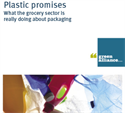 Just when you thought supermarkets were moving to more sustainable options, a new UK study finds that their efforts are doing more harm than good. Cardboard instead of plastic containers might seem like progress, but not if they are coated with non-recyclable materials, and compostable or wooden cutlery might be more damaging for the environment than plastic, according to the report from The Green Alliance.
Just when you thought supermarkets were moving to more sustainable options, a new UK study finds that their efforts are doing more harm than good. Cardboard instead of plastic containers might seem like progress, but not if they are coated with non-recyclable materials, and compostable or wooden cutlery might be more damaging for the environment than plastic, according to the report from The Green Alliance. Based on interviews with industry insiders, the study found that “a disjointed and potentially counterproductive approach to solving plastic pollution is emerging”, and that the equivalent of 900 pieces of single-use plastic are on supermarket shelves for every person in the UK each year, even in the face of a massive uptick in shopper complaints about the proliferation of plastic in the stores. One contributor to the study said that supermarkets have made changes even when they knew the overall environmental impact might be worse, and The Green Alliance says that single-use paper bags for bakery or fresh produce, for example, may have a higher carbon impact than plastic alternatives.
Adam Read of Suez recycling and recovery UK warns of the danger of unintended outcomes from the war on plastics. One approach highlighted by the study is the move to reusable and refill schemes, but that requires a change in consumer behaviour and making shoppers aware that it is an option for some items.
Andrew Opie from the British Retail Consortium argues that eliminating plastic ignores the benefits of plastic packaging, especially on food waste, but agrees that we need a coherent waste and resources strategy that looks at the environmental impact generally rather than focusing just on reducing plastic use.
[Image Credit: © Green Alliance]
OTHER NEWS
Oregon Metro Uses Tinder As The Inspiration For A Consumer Awareness Program On Recycling
 Oregon Metro, which works with communities and businesses in the Portland metropolitan area, teamed up last year with local government bodies on RecycleOrNot.org, a scheme to help households better understand what can and can’t be recycled. It is expanding the program this year by launching a game on its website “loosely inspired by the dating app Tinder” - players identify what can be put into recycling by swiping left or right. [Image Credit: © Oregon Metro]
Oregon Metro, which works with communities and businesses in the Portland metropolitan area, teamed up last year with local government bodies on RecycleOrNot.org, a scheme to help households better understand what can and can’t be recycled. It is expanding the program this year by launching a game on its website “loosely inspired by the dating app Tinder” - players identify what can be put into recycling by swiping left or right. [Image Credit: © Oregon Metro]
Copyright 2026 Business360, Inc.

